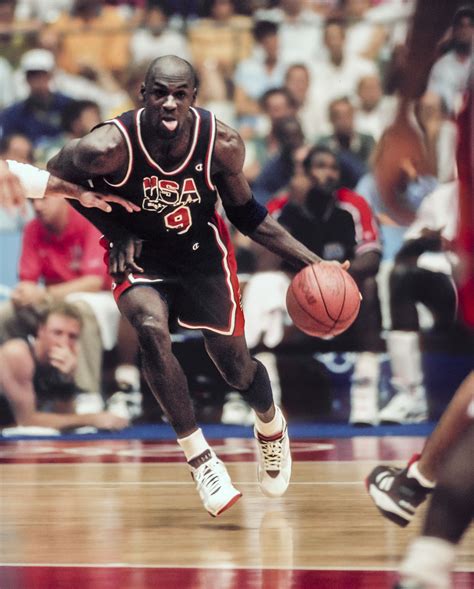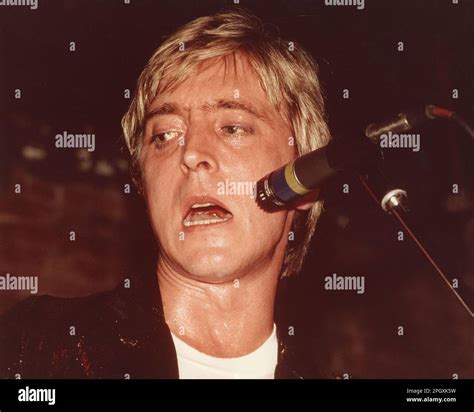
Michael Jordan once envisioned his ideal date as a simple affair: dinner, a movie, and, crucially, an absence of paparazzi. In a resurfaced interview from 1991, the basketball legend detailed his preference for normalcy and privacy in his personal life, revealing a desire for experiences that were often unattainable due to his global fame.
The interview, part of a larger profile, sheds light on the challenges Jordan faced in maintaining a semblance of a typical life amidst the constant media attention and public scrutiny that came with being arguably the most recognizable athlete on the planet. He described his “dream date” not as some extravagant event, but as a low-key evening centered around genuine connection, something that proved difficult to achieve given his status.
“Just dinner and a movie,” Jordan stated simply, emphasizing the desire for a relaxed and unassuming evening. However, he acknowledged the inherent complications. “Without the paparazzi,” he added, highlighting the ever-present challenge of maintaining privacy. This candid remark underscores the profound impact his fame had on his personal life, transforming even the most ordinary activities into potential media events.
The context of this interview is crucial to understanding Jordan’s perspective. In 1991, he was already a global icon, having led the Chicago Bulls to their first NBA championship. His fame was rapidly escalating, and the demands on his time and attention were immense. He was not just a basketball player; he was a cultural phenomenon, a marketing juggernaut, and a role model for millions. This level of public exposure inevitably impacted his ability to navigate everyday life anonymously, particularly when it came to forming personal relationships.
Jordan’s desire for a “normal” date reflects a common yearning for authenticity and genuine human connection, something that can be particularly difficult to achieve when one is constantly in the public eye. The absence of paparazzi would allow for a more natural and relaxed interaction, free from the pressure of being observed and judged by the outside world. It would enable him to be himself, rather than the carefully curated persona that was often presented to the public.
The challenge for Jordan was not simply finding someone to go on a date with, but finding someone who was genuinely interested in him as a person, rather than being motivated by his fame and fortune. The presence of paparazzi would only exacerbate this issue, creating a spectacle that would overshadow the actual date and potentially attract unwanted attention.
The interview also provides insights into the sacrifices that come with fame and success. While Jordan enjoyed the rewards of his achievements, including wealth, recognition, and the opportunity to pursue his passions, he also had to contend with the loss of privacy and the constant intrusion of the media. His “dream date” highlights the simple pleasures that were often out of reach, underscoring the human cost of celebrity.
Over the years, Jordan has remained relatively private about his personal life, further emphasizing the importance he places on maintaining control over his image and protecting his relationships from public scrutiny. While he has occasionally been photographed with his partners, he has generally avoided the kind of high-profile media attention that often accompanies celebrity romances.
The desire for a paparazzi-free date also speaks to the larger issue of celebrity culture and the often-invasive nature of media coverage. While the public may be fascinated by the lives of celebrities, it is important to remember that they are still human beings with a right to privacy. The constant pursuit of sensational stories and exclusive photographs can have a detrimental impact on their mental health and well-being, making it difficult for them to lead normal lives.
In the years since the interview, the media landscape has changed dramatically with the rise of social media and the proliferation of online news sources. This has only intensified the challenges faced by celebrities in maintaining their privacy, as they are now constantly being bombarded with requests for information and photographs.
Jordan’s “dream date” serves as a reminder that even the most famous and successful people crave normalcy and privacy. It is a testament to the human desire for genuine connection and the importance of respecting the boundaries of others, regardless of their public profile. His words offer a glimpse into the private world of a public figure and highlight the sacrifices that come with fame and fortune.
The incident highlights the ever-present tension between the public’s fascination with celebrity lives and the individual’s right to privacy. Even a simple request for a quiet, intimate date reveals the extraordinary challenges faced by someone of Jordan’s stature in navigating the complexities of fame. The “dream date” isn’t about extravagance; it’s about the normalcy that fame often strips away. It’s about genuine connection without the distorting lens of public perception.
Furthermore, this revelation about Jordan’s desire resonates beyond the realm of celebrity gossip. It touches upon universal human desires for intimacy, privacy, and the ability to form authentic connections. It reminds us that even those who appear to have it all may still yearn for the simple pleasures of life, uncomplicated by the pressures of fame and fortune. The wish for a paparazzi-free evening speaks to a deeper longing for control over one’s own narrative and the ability to experience life on one’s own terms.
Jordan’s enduring popularity ensures that anecdotes like this will continue to circulate and be re-examined. They provide glimpses into the man behind the myth, revealing the human side of a global icon. While his on-court achievements are well-documented and celebrated, it is these personal revelations that help to paint a more complete picture of Michael Jordan, the individual. They remind us that beneath the layers of fame and success lies a person with the same basic needs and desires as everyone else.
The article’s emphasis on the “dream date” also serves as a commentary on the nature of celebrity relationships. The constant scrutiny and public attention can place immense pressure on couples, making it difficult to maintain a healthy and sustainable relationship. The desire for privacy is not just about avoiding unwanted attention; it’s about creating a space where genuine connection can flourish without the interference of external forces.
In conclusion, Michael Jordan’s “dream date” reveals a deeper truth about the challenges of fame and the universal desire for privacy and genuine connection. It serves as a reminder that even the most celebrated figures are still human beings with the same basic needs and desires as everyone else. It also highlights the importance of respecting the boundaries of others and allowing them to experience life on their own terms, free from the constant scrutiny of the public eye. The simple wish for dinner and a movie without paparazzi speaks volumes about the complexities of navigating life in the spotlight and the enduring human need for normalcy and authenticity.
Frequently Asked Questions (FAQ)
1. What was Michael Jordan’s “dream date” according to the interview?
According to a resurfaced 1991 interview, Michael Jordan described his “dream date” as “just dinner and a movie,” but crucially, “without the paparazzi.” He desired a relaxed and private evening, free from media intrusion.
2. Why was the absence of paparazzi so important to Jordan?
The absence of paparazzi was essential because their presence would transform a simple date into a public spectacle, attracting unwanted attention and potentially compromising the authenticity of the interaction. Jordan wanted to connect with someone without the pressure of being observed and judged by the outside world. The ever-present challenge of maintaining privacy made it difficult for him to have genuine, normal experiences.
3. How does this interview shed light on the challenges of fame?
The interview highlights the sacrifices that come with fame, including the loss of privacy and the constant intrusion of the media. Jordan’s desire for a “normal” date underscores the difficulty celebrities face in maintaining genuine connections and experiencing simple pleasures that are often out of reach due to their public profile. It reveals a universal human desire for normalcy and authenticity.
4. What does this anecdote reveal about Jordan’s personal life?
This anecdote reveals that, despite his global fame and success, Jordan yearned for normalcy and privacy in his personal life. It suggests that he valued genuine connection and wanted to be seen as more than just a celebrity. It provides a glimpse into the personal sacrifices he made due to his public status and underscores the human side of a global icon. The article makes it clear that he has tried to maintain some semblance of privacy in his life.
5. What is the broader significance of Jordan’s “dream date” beyond celebrity gossip?
Beyond celebrity gossip, Jordan’s “dream date” touches upon universal human desires for intimacy, privacy, and the ability to form authentic connections. It reminds us that even those who appear to have it all may still yearn for the simple pleasures of life, uncomplicated by the pressures of fame and fortune. It’s a commentary on the nature of celebrity relationships and the difficulties in maintaining a healthy and sustainable relationship under constant scrutiny. It underscores the importance of respecting the boundaries of others, regardless of their public profile.
Expanded Context and Analysis
The enduring fascination with Michael Jordan extends far beyond his unparalleled basketball skills. His cultural impact, brand endorsements, and carefully cultivated image have made him a subject of constant public interest. Consequently, even a seemingly trivial detail like his “dream date” preference provides valuable insights into the complexities of his life and the challenges he faced navigating the world as a global icon.
The interview snippet reveals a profound tension between Jordan’s public persona and his private desires. While he embraced the spotlight on the court, he simultaneously craved the normalcy and anonymity that eluded him off the court. This duality is a common theme among celebrities, who often struggle to reconcile their public image with their personal identities.
The concept of a “dream date” is inherently personal, reflecting individual preferences and values. For Jordan, the ideal date was not about extravagance or luxury, but rather about simplicity and authenticity. The focus on dinner and a movie suggests a desire for genuine conversation and shared experiences, free from the distractions of elaborate settings or public attention. The emphasis on privacy further underscores the importance he placed on creating a safe and intimate space where he could be himself without fear of judgment or intrusion.
The paparazzi, in this context, represent the antithesis of privacy and authenticity. Their relentless pursuit of celebrity images can transform even the most mundane activities into media events, disrupting personal moments and distorting public perception. The presence of paparazzi would not only compromise the privacy of the date but also potentially influence the behavior of those involved, creating an artificial and performative atmosphere.
Jordan’s desire for a paparazzi-free date also speaks to the broader issue of consent and control in the age of celebrity. Celebrities are often subject to intense scrutiny and have limited control over how their image is portrayed in the media. The constant surveillance and public attention can be overwhelming and intrusive, making it difficult for them to maintain their privacy and autonomy.
The resurfaced interview also provides a historical perspective on the evolution of celebrity culture and media coverage. In 1991, the internet was still in its infancy, and social media did not yet exist. However, even in the pre-digital age, celebrities faced significant challenges in maintaining their privacy. The rise of social media and the proliferation of online news sources have only intensified these challenges, creating a 24/7 news cycle and blurring the lines between public and private life.
The anecdote also raises questions about the ethics of celebrity journalism and the responsibility of the media to respect the privacy of individuals, even those in the public eye. While the public may have a legitimate interest in the lives of celebrities, it is important to balance this interest with the individual’s right to privacy and autonomy. The constant pursuit of sensational stories and exclusive photographs can have a detrimental impact on the mental health and well-being of celebrities, making it difficult for them to lead normal lives.
Furthermore, Jordan’s preference for privacy is consistent with his overall approach to managing his public image. Throughout his career, he has been known for his controlled and deliberate communication style, carefully selecting the information he shares with the public. This approach reflects a desire to protect his personal life and maintain control over his narrative, particularly in an era of constant media scrutiny.
The enduring relevance of this anecdote lies in its ability to humanize a global icon. By revealing his desire for a simple, private date, Jordan reminds us that even the most famous and successful people crave normalcy and authenticity. It challenges the perception of celebrities as larger-than-life figures and highlights the shared human experiences that connect us all.
In the context of contemporary celebrity culture, where social media has blurred the lines between public and private life, Jordan’s “dream date” serves as a poignant reminder of the value of privacy and the importance of respecting the boundaries of others. It encourages us to reflect on the impact of our own consumption of celebrity news and to consider the human cost of fame and fortune.
The incident also highlights the changing dynamics of relationships in the public eye. The scrutiny of paparazzi and the constant media attention can place immense pressure on couples, making it difficult to maintain a healthy and sustainable relationship. The desire for privacy is not just about avoiding unwanted attention; it’s about creating a space where genuine connection can flourish without the interference of external forces.
The article’s analysis could be broadened by exploring the psychological impact of fame on individuals. Studies have shown that celebrity status can lead to increased stress, anxiety, and depression due to the constant pressure to maintain a public image and the loss of privacy. Understanding these psychological factors can provide a deeper appreciation for the challenges faced by celebrities and the importance of protecting their mental health.
In addition, the discussion could be extended to examine the role of publicists and image consultants in shaping the public perception of celebrities. These professionals play a crucial role in managing the media exposure of their clients and crafting a carefully curated image that appeals to the public. The anecdote about Jordan’s “dream date” highlights the tension between the authentic self and the manufactured persona that is often presented to the world.
Finally, the article could explore the legal and ethical considerations surrounding paparazzi photography and the right to privacy. While the media has a right to report on matters of public interest, it is important to balance this right with the individual’s right to be free from harassment and intrusion. Many jurisdictions have laws that restrict paparazzi activity and protect the privacy of individuals, but these laws are often difficult to enforce.
In summary, Michael Jordan’s “dream date” provides a valuable lens through which to examine the complexities of fame, privacy, and the human desire for connection. It serves as a reminder that even the most celebrated figures are still human beings with the same basic needs and desires as everyone else. It also highlights the importance of respecting the boundaries of others and allowing them to experience life on their own terms, free from the constant scrutiny of the public eye. The simple wish for dinner and a movie without paparazzi speaks volumes about the challenges of navigating life in the spotlight and the enduring human need for normalcy and authenticity. The continued interest in this type of human-interest story underscores the importance of understanding the people behind the public images. The need to protect public figures while still providing them with appropriate coverage is something the journalistic and celebrity community will continue to grapple with.









